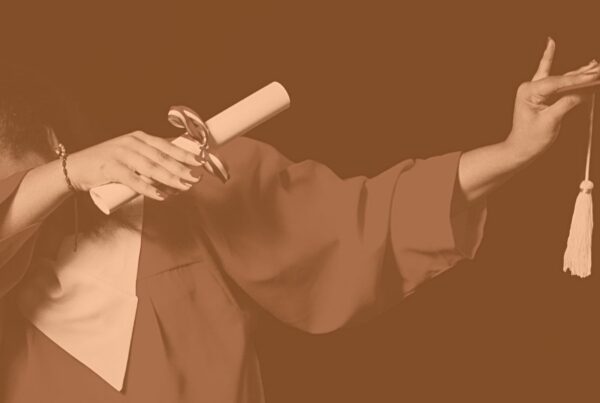On this week’s Event Brew, we’re breaking down the Global Event Forum report. So, just in case you don’t know, the Global Event Forum brings together the most influential live event professionals. And here, they debate and discuss the hottest and most relevant topics impacting the live event industry on a global level. Four issues were outlined and discussed at length. And the major topic that took over the conversation was commoditization in the industry.
So, this week, our hosts Nick Borelli, Thuy Diep, and Dustin Westling are giving you the scoop. We’re breaking down the best bits and discussing the strategies and ideas coming out of the report. And pro-tip: make sure you get your hands on the Global Event Forum report to better follow the conversation. Are you ready? Let’s get brewing!
Click here for the full audio transcription.
 What Was The Global Event Forum Report All About?
What Was The Global Event Forum Report All About?
“So after that report was put out there was a lot of conversation in our industry about commoditization”, explains Dustin. “I think a lot of people were learning about the details of it for the first time. Which was a really, really important conversation to have. And as the Global Event Forum was put together this year and came back to the table in August, the next step to that was talking about how do we continue that conversation of what we see as the commoditization issue? And there were topics about the importance of value. So this year the forum established three phases, each of them with 10 principles”.
Nick explains what the three phases from the Global Event Forum report mean. “So, for a long time, event professionals have had this really nebulous hard problem of differentiating what someone does for a living”, says Nick. “And I’ve had a hard time myself trying to figure out where one ends and one begins because they’re so intertwined. So what’s cool about this is that it’s very linear. It goes from strategy to design to execution”.
“And I think one of the underpins of all three of these phases is showing how there are things that are very likely to be commoditized. And there are things that are further away that are less likely to be commoditized. So it kind of goes from the work of pure intellect, to eventually at the end of it, stuff”, he adds.
Why Does The Global Event Forum Matter?
“So there’s a team put together by ILEA because ILEA really is the driver of the Global Event Forum”, explains Dustin. “There’s a team put together that looks into the industry. The goal, I believe, is to fill the room with industry professionals from all walks of our industry. They use their networks. Members of the forum, past forums are asked for input, and that’s how it’s built”.
“These aren’t huge, corporate companies either”, adds Thuy. “They range, and I think that it’s great to have all of that from all angles, from all perspectives, from different regions, from different areas within the event industry”. Dustin adds that the Global Event Forum report does a really good job. “There are some great principles here. And there’s some great information. If you’re looking at this from your business view and you’re struggling to put the pieces together, if you’re struggling to figure out where you fall in the process, one great thing that you can find in this report is where you are in the process. And better understand the phases before you, the phases after you, and how they all tie together”.
The Strategy Phase
“We’re in a funny time where everybody wants to call themselves strategists”, says Dustin. “At every level of this, everybody is talking about their value is in the strategy. That language and this word strategy is becoming more and more common in somebody’s value proposition”. Nick believes that “from a real practical standpoint, everyone wants to be at the earliest stage as possible. Because that sets everything. On the most practical, it sets the budget. On the higher level of it, it sets the North star. So it’s the decision-making apparatus. If you can create that, you’re in the driver’s seat. I understand the allure of wanting to position yourself as a strategist. I think everyone should be able to have a strategic mind, regardless of your contribution to events. You should be able to take the understanding of that phase and apply it to what you do”.
Understanding Your Role
“And that is actually a big part of the conversation that we had this year, was about everyone understanding their role in the strategy”, explains Dustin. “Strategic thinking and understanding the strategy is actually the most important thing you can do at every level of this. If you have a great strategist working on a project and the phases or the professionals that are after the strategy has been set don’t understand how to read or realize it, then everything just kind of fails. So there’s definitely a role for everybody to play in the strategy of the event”, he concludes.
 The Design Phase & The Delivery Phase
The Design Phase & The Delivery Phase
For Thuy, “the strategy, how it blends into the detailed designing and the delivery, it’s the why for strategy, the story, the how, how we’re going to do the tactics. And that’s obviously the longest portion. Then the delivery, the fulfillment. Then on top of that, it’s the thinking and the doing portion of it and how it’s split”.
The Event Creation Journey & The Importance Of Delivery
“So this graph says that the strategy phase is the highest as far as being able to differentiate your value”, explains Dustin. “Therefore it is the least. Likely to be a commodity or to be commoditized. As you go through the creation, so you go from strategy to detailed design to delivery and the differentiating value ends up all the way down to the bottom. It’s at its highest level at the strategy phase and at its lowest level at the delivery phase”.
“I think that there’s a positive of commoditization, which very few people talk about”, says Nick. “But you have to put yourself exclusively in the role of the consumer. The consumer wants to know what they’re getting for their money. That’s what commoditization is. They wanted to know in a verifiable way, what’s the direct ROI?”. He goes on to add that “when you think about strategy, I have it and you don’t. Because it’s of the intellect. Only one person can have it. Because it’s a unique offering because there is only one person whose ability to discern all of your ideas and mix a little bit of art and science together. And because that is a unique thing, there is no set price on creativity”.
This is where Thuy disagrees. “Yes, you want to have those core details, the bigger picture, the vision, everything. If that’s not executed properly or that’s not delivered, then that client is not going to return. Or that company is going to fail because you can plan and wish and graph and do all of that. But it’s more about the execution”. Dustin chimes in by clarifying the graph. “The sliding scale is not talking about the value in the process. It’s not talking about bringing value to the project. It’s talking about who can differentiate their value in that process”, he explains. “The delivery stage has a harder time differentiating their value. Because in most cases at the delivery phase, there’s a lot of people selling the same thing”.
Making Strategic Choices
“I also think that you could look at this event creation journey as the entire event. You can also look at it as any contributor”, says Nick. “I think this is one of the key things that I really hope a lot of event professionals start doing more of. That is adding value and assigning value to the different phases they have in their process. There’s a strategy element to what they do”.
“And I’m not saying that they’re setting the strategy for the event. But they’re making strategic choices. They’re using their experience that is unique to them in order to interpret the overall event strategy and provide a strategy for why they have chosen the pieces that they have. And then the design aspect of it to make sure that there is a process that is repeatable, that has redundancies, that have the right labor, all that good stuff. The delivery of it, in a literal sense, the delivery but also in all the nuts and bolts of the physicality of it”, he adds.
Navigating The Global Event Forum Report Phases
“I think the hardest is, of course, the one that can differentiate the value the most. So I think that the strategy component is the hardest. And that is where you need a very different skill set to understand a business. The amount of information that you need to process in order to build a strategy is insane. And if you’re a good strategist, you have to have a huge amount of knowledge when it comes to business operations”, says Dustin.
“I think that you can, to be an average to okay strategist is probably the easiest of the three”, says Nick. “Because you’re not validating a lot of what you do. What you’re doing is, you’re making just arbitrary decisions for people who can’t make decisions and you’re just kind of sticking to your guns. I think that you’re only good at the thing you’re good at. I think that it’s very difficult for you to be good or great at all three of those things”.
Connections Between Phases
“I feel like I’ve had many late-night conversations with a lot of people in the industry about this”, says Thuy. “Because I really truly feel like this industry has constantly shifted to a point where everything so last minute now. Now, because everything is so last minute, we hand it over later. And all those changes, we get stuck in this kind of limbo where here are the designs, and contracts are signed, or we’ve partnered, we’ve selected our supplier partners and now the ops person, our event producer now has to make it run. But there’s a shorter window”.
“I give every area and phase kudos because it’s its own level of responsibility and stress and rewards”, she continues. “So it’s this constant working of this unit where everyone else has these roles”. Nick adds that “I think that there is something to be said about where do you fit in as a person to these things. I think a lot of that is another interesting part. So where does your business fit in? Where is the design of an event? What are the phases of that? But also as a person, where do you think you should put your time?”.
Nick’s Pro Tips
“We create a bunch of concise pieces that are around keywords and language and kind of mandatory goals”, he says. “So as long as you can make things really simple and just give people guides, then the rest of it, which becomes a little bit more maybe on the tactical side of the strategy, is mostly just given to the designer. In order to take in, absorb and then communicate to their other people. But the only artifact that really survives in a pure form all the way to the bottom is the most concise wrap up of what this is about. As long as everyone on the whole team understands that, they should be able to make a more thoughtful, strategic decision making in the process as they have to make quick decisions. They’re doing quick decisions based on something that we’ve all decided is important”, he concludes.
Thuy’s Pro Tips
“In this case, and my role day today, I have two other teammates that we all have different objectives”, she says. “But we all need to work as a unit. And so communicating is so key, from every single phase in the protocol, in order to get down to that. From the idea all the way to the execution and from a design standpoint, being able to have to do both. So communication in anything and balance in anything is so vital. Because if one department or one phase isn’t communicating to the other, everything falls, and it’s really that split of like responsibility”.
Nick agrees with Thuy and adds that “if you want to have a successful project, I think engaging everybody in the same information is really important. So, however you communicate to your supplier partners, make sure that you include a brief, and make sure you include the strategy. Make sure you tell them what they’re working towards in a really clear, easy to understand way”.
Global Event Forum Report: Conclusions
And that’s a wrap on this week’s episode of Event Brew. What are your thoughts on the Global Event Forum report? Do you agree with our hosts’ perspectives on the three different phases? What are your main takeaways from this? Make sure you let us know and don’t forget to tune in next week for some more amazing brewing!
Resources
Ageism In Events: Why the 50+ Generation Still Matters For The Industry
Tackling Commoditization In The Event Industry – #EventIcons Episode 157
The Biggest Takeaways from the Global Event Forum – #EventIcons Episode 154










